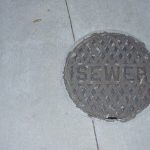Four Tips to Conserve Water in Your Southern California Home
Whether you are concerned with current devastating and historic drought in Los Angeles and the San Fernando Valley or simply want to help the environment in general, conserving water is an excellent first step. These four tips will help you save water without compromising on your lifestyle.
Don’t Leave the Faucet Running… EVER
One of the simplest steps to saving water is simply not to leave your faucet running when it is not required. Whether you run the faucet while you are brushing your teeth or washing your face, you could be wasting literally thousands of gallons of water every year. Instead of leaving the faucet running, use a glass of water to brush your teeth and collect water for washing dishes. Whenever you have the faucet running, you need to ask yourself whether you actually need the water. If you need to run the water continually to get hot water, you may need to consider upgrading to a tankless water heater or installing a recirculation pump. Both systems can provide virtually instant hot water, eliminating the need to keep the faucet running while you wait for the water to get hotter.
Adapt Your Washing Machine Habits
Many households waste gallons of water simply by the way they use their washing machine. Taking a more strategic approach to laundry can quickly solve this problem. Instead of washing multiple small loads of clothes, collect a full load and wash less often. While this does mean waiting between loads, it could cut your laundry water usage by up to two-thirds. Instead of washing stained clothing multiple times, soak the garments in a stain remover before you put them in the washing machine. You could also consider upgrading your washing machine to a more efficient, low water consumption, front-loading model. Some newer models feature economy cycles which allow you to wash small loads quickly without using lots of water.
Upgrade Your Plumbing Fixtures
Leaks and inefficient fixtures can waste considerable amounts of water in even a short period. New fixtures are designed to offer low flow and high efficiency. By upgrading your toilet, faucets and showerheads, you could save hundreds of gallons of water each month. For example, an efficient showerhead could use up to 20 gallons less each minute it is running. This will help with the current water crisis, the environment in general and reduce your utility bills.
Rethink Your Dishes:
While you may give little thought to how you wash your dishes, you could inadvertently be wasting hundreds of gallons of water each week. If you are in the habit of putting the dishwasher on even if it is only half full, you may be wasting up to 15 gallons each load. If this is your daily habit, this could be thousands of gallons a year. It is a far more economical idea to wait until the dishwasher is full before running it. Additionally, not pre-washing your dishes could add up to saving 0.4% of your total indoor water use. Most modern dishwashers don’t require dishes to be pre-washed or rinsed, and they will still deliver an excellent finish.
If you are using an older dishwasher, you may want to consider upgrading. By switching to an Energy Star labeled appliance you could save water and electricity. If you were considering ditching the dishwasher altogether and washing by hand, you should be aware that an Energy Star appliance could provide water savings of 2.1%. While this may seem like a small amount, it could add up to thousands of gallons each year.
By using these water saving tips, you could reduce your usage by hundreds of gallons in an average month. This is not only better for our current reality here in LA and the Valley, but the environment in general and should offer a significant reduction in your utility bills.
By Giovanni Longo President Flood Brothers Plumbing
Giovanni Longo is a 3rd generation master plumber who has been practicing his craft and trade in the greater Los Angeles area for well over a decade and a half. A plumbing and hydraulics-engineering innovator, Giovanni’s particular world-class expertise focuses on dealing with challenging sewer system designs as well as resolving complex commercial and residential draining issues. As a certified Flood Mitigation expert, he is also well versed in a wide variety of water damage and remediation solutions.





